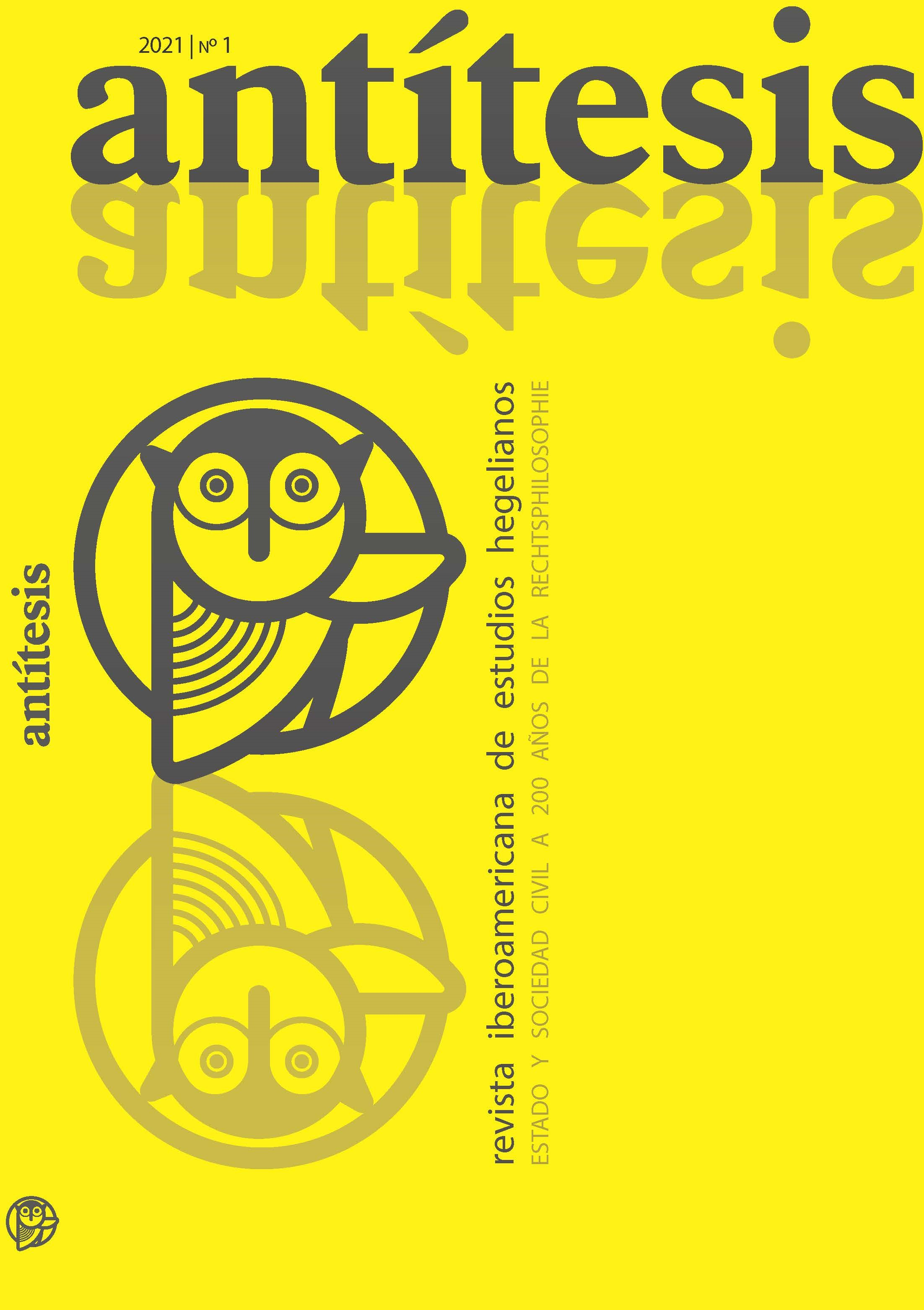Development of the Concept of Freedom in the Philosophy of Right: Exegesis and Eisegesis in the Context of the Differentiation of Capital
Keywords:
Hegel, will, Sittlichkeit, concept, freedom, differentiation of capitalCopyright (c) 2021 Christian Montero

This work is licensed under a Creative Commons Attribution 4.0 International License.
Abstract
In the present article we concentrate on developing what we consider the essential passages of Hegel’s political philosophy in the Philosophy of Right. Firstly, as an introductory note to the content, we analyze briefly the aims pursued by his project, both contextually and in itself. This obliges us to distinguish between the existent and the real. Secondly, we proceed to expose the concept of will, which transits from an abstract moment (the subjective will) to the concrete moment (the will in itself and for itself, which is identical to the Idea). Thirdly, we continue studying the morality by focusing on Hegel’s immanent critique of Kant, stating the idea of the autonomy of moral being on Sittlichkeit. Fourthly, the ethical Idea keeps giving itself content in the family, in civil society and in the State. Our interest focused on the last two, although family has its exiguous place in the article. The emphasis on civil society and the State lies in the moments when individuality experiences its selfish and, subsequently, universal ends. Finally, we reflect on our contemporaneity and the demands that the concept of ethicity has in a new context, namely, the differentiation of commodities that becomes the differentiation of capital. By means of the concept of differentiation of capital expounded by Pablo Levín, our intellection of capitalism is enriched. Thus, we understand that the specificity of this universal system is domination through ideology. Indeed, we use the concepts of alienation, fear of freedom and oppression developed by Paulo Freire to explain the selfish, abstract, and unreflective manifestations of the present. This task, far from distancing us from Hegel’s concept, invites us to take it up again to distinguish its limits as well as its potentiality.
Downloads
References
AVINERI, S., Hegel´s Theory of the Modern State, Cambridge University Press, Cambridge, 1972.
FREIRE, P., Pedagogía del oprimido, Siglo XXI, Buenos Aires, 1972.
FREIRE, P., Fenomenología del espíritu, Fondo de Cultura Económica, Buenos Aires, 2015.
FREIRE, P., Ciencia de la lógica, Las cuarenta, Buenos Aires, 2013.
FREIRE, P., Filosofía del derecho, Claridad, Buenos Aires, 2009.
LEVÍN, P., El capital tecnológico, Catálogos, Buenos Aires, 1997.
PINKARD, T., Hegel, una biografía, Acento, Madrid, 2001.
TAYLOR, C., Hegel and Modern Society, Cambridge Philosophy Classics, Cambridge, 2015.
